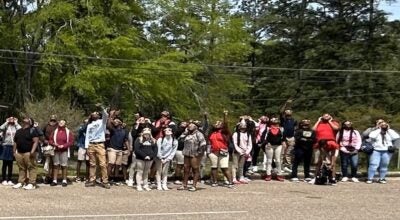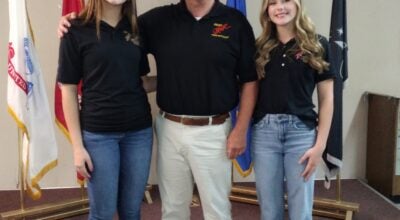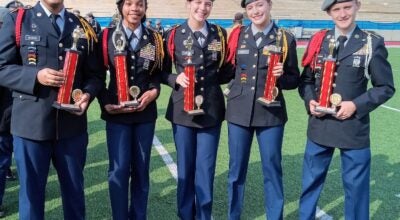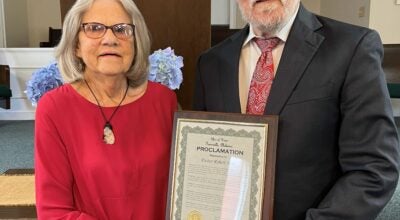Veterans push their limits
Published 1:19 pm Friday, March 11, 2016

Riders taking part in the Ride 2 Recovery Gulf Coast Challenge made a pitstop in Greenville on Wednesday. The Ride 2 Recovery program is an effort to improve the health and wellness of healing heroes around the world, while also providing a life-changing experience that pushes participants to their physical and mental limits. (Advocate Staff/Jonathan Bryant)
Dozens of military vets and first responders once again made the Camellia City a pitstop on the Ride 2 Recovery Gulf Coast Challenge, a cycling journey spanning hundreds of miles and multiple states.
Riders included military veterans from World War II to the Iraq War, and all of them made their way through Greenville Thursday as a part of a six-day, 534-mile bike ride from Atlanta to New Orleans.
The Ride 2 Recovery program is an effort to improve the health and wellness of healing heroes around the world, while also providing a life-changing experience that pushes participants to their physical and mental limits.
One of the soldiers who responded to a different sort of call Thursday was Sgt. First Class Patrick Smith, a U.S. Army veteran of 24 years.
Smith will be retiring this year, but there was one final challenge he’d hoped to tackle head-on before doing so.
“A friend of mine from Fort Benning, Ga., got me into the Project Hero program, and he did the Gulf Coast Challenge last year and a couple of other challenges, and he told me what a great organization it was,” Smith said.
“And of course I signed up because I wanted to challenge myself and see how far I could push my limits. I did it to push myself to see how far I can make myself go. And being on the challenge has really opened my eyes up to just the determination that everybody in this squad has. I’ve met a Fort Hood shooting survivor … just so many people from all walks of life that I never would’ve met that brought a lot of heart back to me.”
Smith called the Ride 2 Recovery a much-needed opportunity for disabled veterans and first responders to get out of their houses and do something truly productive.
What Smith didn’t anticipate, however, was how quickly and closely the bonds would form with his fellow brothers and sisters in arms.
“We help each other overcome problems, and we push each other on the rides mentally and physically,” Smith said.
“It’s a form of therapy for a lot of people because cycling gets your mind off of everything that’s bothering you. You forget about your pains because you’re helping other people work through theirs.”
Joe Coddington, event director of Ride 2 Recovery, said that the program saved lives by “restoring hope and purpose.”
One of those ways was found primarily in restoring a sense of unit identity and family, as well as providing a healthy outlet for veterans suffering from post-traumatic stress disorder (PTDS) and traumatic brain injuries.
When Smith recalled his own personal physical and spiritual journey, it brought tears to his eyes.
“It’s very sentimental,” Smith said.
“Physically, I rode myself into shape that I wasn’t in because my legs are normally in a lot of pain after a 50 or 60-mile ride. But I don’t know if it’s the adrenaline riding with these folks, but I’m not feeling the pain. It’s hard to explain the feeling of being in this challenge. It’s tough, because there are just so many different aspects of it that you see between dinners, pushing and riding and the camaraderie. It all goes back to the fact that we are a family.”





